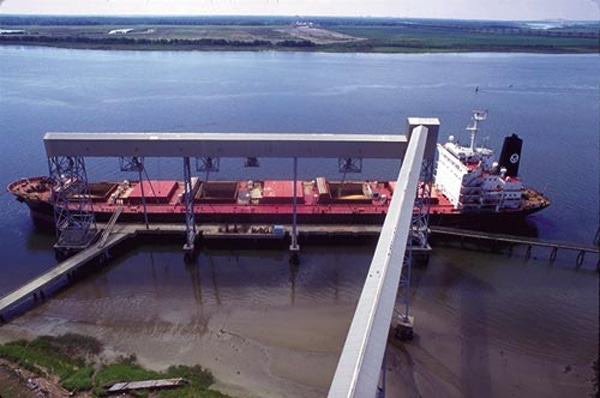
While Brazil continue to be one of the largest export competitors for the United States, it faces a number of tough challenges including transportation distances and rising fuel costs, according to a Rabobank report on Brazil’s agribusiness outlook for 2014.
The report from Rabobank’s Food & Agribusiness Research team says it expects another year of record production for several of Brazil’s major agricultural crops in 2014, including soybeans and depending on weather developments, sugarcane.
According to USDA’s World Agricultural Supply and Demand Estimates, Brazil’s current soybean crop is projected at 88.5 million metric tons, or 3.25 billion bushels. Rabobank projects Brazil’s 2013-14 soybean crop at 3.34 billion bushels.
USDA is forecasting Brazil’s soybean exports for 2013-14 at 45 million metric tons, or 1.6 billion bushels, easily the United States’ biggest export competitor. The estimate for Brazil’s soybean exports has increased in each of the last three years, according to USDA.
The Rabobank report points out that international prices for many of Brazil’s agricultural commodities fell in 2013 and could decline further in 2014. Rabobank says that infrastructure and logistics remain a key point of concern for the country for 2014, particularly for the export market. With production and export volumes set to rise again, and further increases in transport fuel costs implemented at the end of 2013, there is little chance of lowering costs for transporting commodities internally in 2014.
“Due to slowing economic growth and high inflation in Brazil, the domestic market will have limited scope to drive growth in sales in 2014,” said Rabobank analyst Andy Duff. “It is possible that some growth may come from exports, but with declining global commodity prices, revenue growth would have to come from an increase in export volumes, or a declining exchange rate, or both.”
Brazil’s soybean area in 2014-15 is estimated to rise 7 percent, 2 million hectare or 5 million acres, as a result of favorable economics for soybeans versus corn.
Brazil’s beef industry is also expecting 2014 to be another year of rising exports. With major competing exporters facing challenges in raising output, Brazil is well placed to capitalize on growing import demand. The decline in the value of Brazil’s currency over the last year has also boosted the industry’s export competitiveness, and a further gradual decline in the Brazilian real to U.S. dollar exchange rate over 2014 is expected to sustain this competitive advantage.
Nevertheless, the positive impact of the weakening of the BRL/USD exchange rate on Brazil’s export competitiveness has been at least partially offset by rising costs, especially in services and logistics.
For example, diesel prices have risen three times since the beginning of 2013, with the most recent hike of 8 percent at the end of November 2013. Given the long distances between major crop production regions and the country’s ports, sustained major investment in infrastructure over the coming years remains pivotal if the country is to continue to expand production and export volumes while remaining competitive. However, this will not happen overnight.
“Although Brazil is slowly addressing its bottlenecks, this will take years,” Duff said. “For 2014, with higher fuel costs and another large grain harvest, logistics costs for Brazilian agribusiness are unlikely to decline.”
Ag news delivered daily to your inbox: Subscribe to Delta Farm Press Daily.
About the Author(s)
You May Also Like






